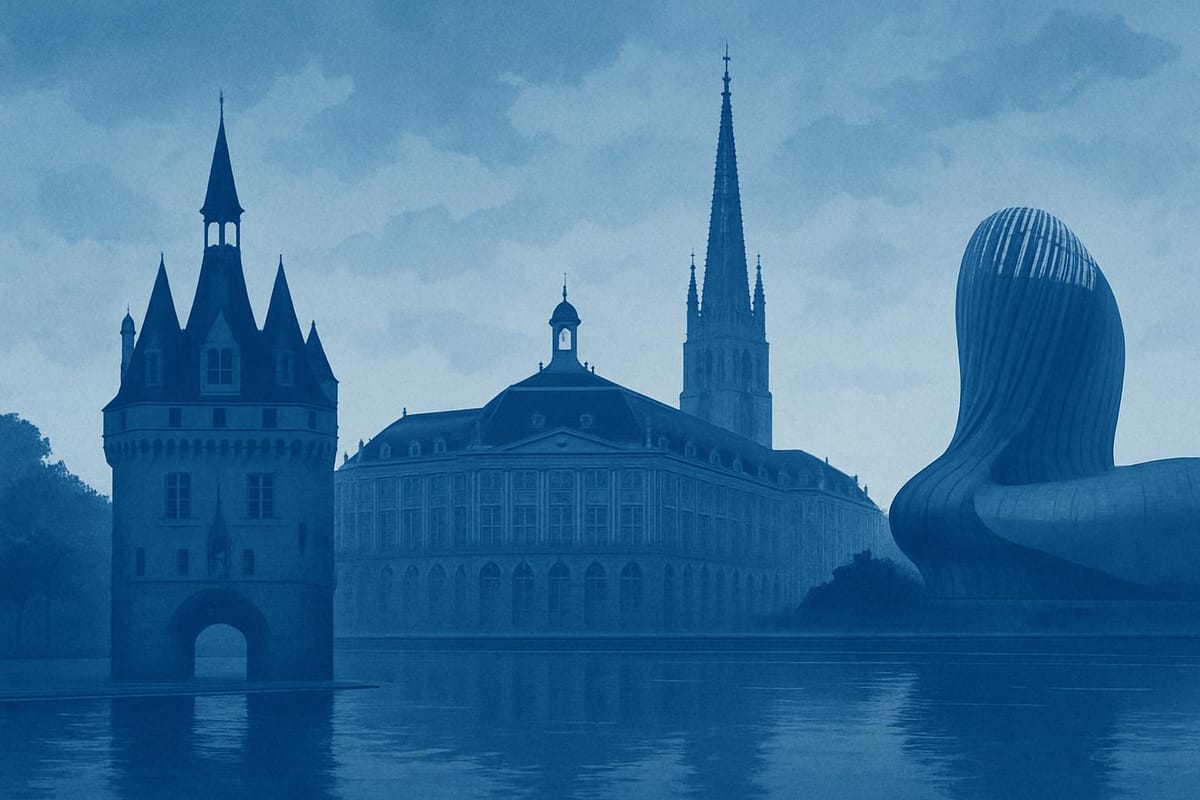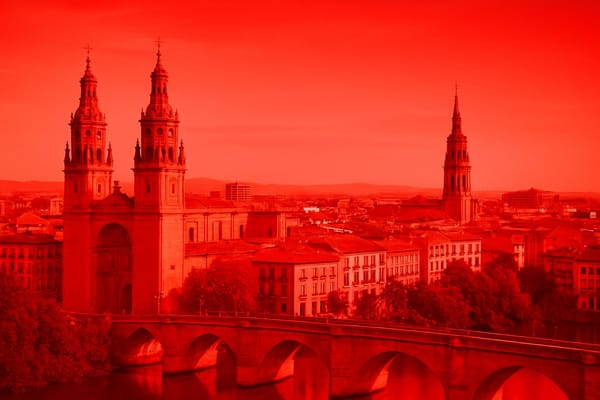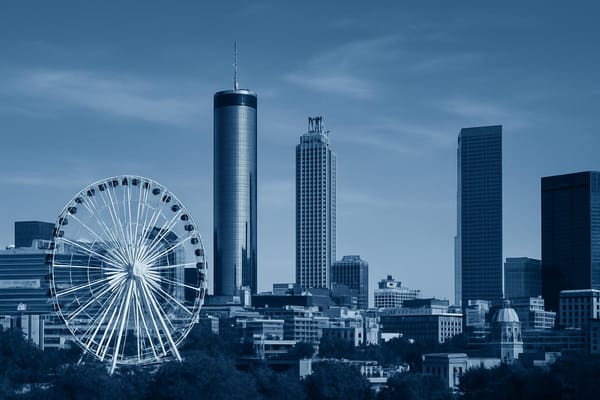Bordeaux
Renowned vineyards, grand châteaux, UNESCO charm, riverfront views & gourmet wine tours.

Important things to know about Bordeaux
Bordeaux in France unfolds as a city where an elegant urban rhythm meets a dynamic modernity: broad avenues and polished stone façades blend with contemporary neighborhoods, creating a balance between preserved character and forward-looking renewal. The local identity is deeply tied to wine culture and culinary excellence, but extends far beyond that into a diversified economy of commerce, services and creative industries that attract residents and entrepreneurs alike; cafés, bakeries and markets form the social tapestry of everyday life while a resilient cultural scene-music, galleries, independent design and festivals-keeps the city lively year-round. Along the gentle riverfront, transportation is practical and pleasant, with efficient trams and good cycling infrastructure supporting a bike-friendly commute that complements walkable districts and green spaces. Architecture alternates between refined historic stonework and inventive contemporary projects, giving neighborhoods distinct personalities that appeal to families, students and professionals. The climate, softened by Atlantic influence, encourages outdoor dining and seasonal markets that shape a relaxed yet engaged lifestyle, and the local food scene champions regional produce and inventive bistro cuisine under the banner of gastronomy. Investment in urban planning and public amenities has enhanced quality of life while retaining a sense of local authenticity, supported by cafés that double as community hubs and artisans who keep craft traditions alive. For anyone researching or writing about Bordeaux city living, these elements-heritage, modern economy, convivial streets, transport options and a vibrant cultural pulse-paint a picture of a city that balances history with contemporary energy.
Sightseeing hot-spots in Bordeaux
Bordeaux, France, is a must-see destination for travelers interested in history, architecture, and wine culture. The city's UNESCO World Heritage historic center unfolds along the Garonne river with elegant 18th-century façades and wide quays that invite slow exploration. Strolling from the Place de la Bourse to the shimmering Miroir d’Eau offers unforgettable photo opportunities, while the restored riverside promenades provide a perfect introduction to sightseeing in Bordeaux. Whether you arrive by train or car, the compact city center makes it easy to combine cultural stops with relaxing moments by the water.
For wine lovers, the Cité du Vin is an essential stop: this modern museum and tasting space brings the story of global wine to life and offers panoramic views over the city. Beyond the museum, wine tours to nearby appellations like Saint-Émilion and Médoc are among the top things to do in Bordeaux, letting visitors sample world-class vintages in historic châteaux. Culinary experiences pair naturally with wine tastings, and Bordeaux’s vibrant markets, bistros, and Michelin-starred kitchens make food a central part of any sightseeing itinerary.
Historic monuments and cultural venues add depth to the visit, from the soaring Saint-André Cathedral and Pey Berland Tower to the neoclassical Grand Théâtre, where opera and ballet performances enrich the arts scene. Museums, contemporary galleries, and lively neighborhoods like Chartrons offer diverse attractions for every traveler. With bike-friendly streets, scenic river cruises, and nearby vineyards, Bordeaux combines urban charm and rural beauty-making it one of France’s most rewarding destinations for sightseeing and culinary discovery.
Hotels to enjoy in Bordeaux
Bordeaux is renowned for its vibrant wine culture and elegant architecture, and the hotels in Bordeaux reflect that unique blend of tradition and modern comfort. From charming boutique properties tucked into historic streets to contemporary luxury stays along the Garonne, visitors can find accommodation that suits romantic getaways, family vacations, and business trips alike. Many Bordeaux hotels are within walking distance of UNESCO-listed landmarks, lively markets, and top restaurants where gastronomy and world-class wine tastings are an everyday pleasure. Staying in the city center means easy access to tram lines and pedestrian-friendly squares, while quieter neighborhoods offer a more local experience without sacrificing convenience.
When searching for the best hotels in Bordeaux, consider your priorities: proximity to attractions, on-site dining, or eco-conscious amenities. Business travelers often prioritize high-speed internet and meeting spaces, while couples may prefer rooftop terraces and intimate spa services. Families look for spacious rooms and easy transit connections to parks and museums. Booking in advance during peak wine season can unlock better rates and room choices, and comparing reviews helps identify properties that deliver consistently on comfort and service. Whether you choose a historic manor converted into a refined hotel or a sleek modern property with panoramic river views, Bordeaux delivers a memorable stay rooted in culture, wine, and refined hospitality.
Restaurants to try in Bordeaux
Bordeaux is a city where Bordeaux restaurants reveal the artistry of French cooking alongside a celebrated wine culture. Wander through the historic streets near the Garonne and you'll find everything from intimate bistros and lively brasseries to inventive tasting menus that reinterpret Bordeaux cuisine for a modern palate. The best restaurants in Bordeaux balance seasonal, local produce with classic techniques: think Atlantic seafood grilled simply, tender duck confit, and vegetables from nearby markets dressed with delicate beurre blanc. Dining here is as much about atmosphere as it is about flavor; terraces in Saint-Pierre, stylish dining rooms in Chartrons, and riverfront views all contribute to memorable meals that pair perfectly with regional reds and whites.
For food lovers and visitors planning where to eat, the city's mix of Michelin-starred establishments and neighborhood gems means you can experience fine dining and authentic local flavors without sacrificing variety. Sommeliers and chefs take pride in wine pairings, so ordering a flight or choosing a recommended bottle often elevates the meal-Bordeaux’s vineyards are never far from conversation. Whether you’re searching for romantic dinners, family-friendly spots, or bold tasting menus, the restaurants of Bordeaux offer a compelling blend of tradition and creativity that satisfies both tourists and locals. Expect attentive service, artisanal ingredients, and a culinary scene that keeps evolving while staying true to its terroir and gastronomic heritage.
Best shopping stops in Bordeaux
Bordeaux is a paradise for shoppers seeking a blend of historic charm and contemporary retail culture. From the bustling heart of the city along Rue Sainte-Catherine, one of Europe's longest pedestrian shopping streets, to the quieter lanes of Chartrons where antique dealers and curated concept stores sit in elegant stone buildings, shopping in Bordeaux offers variety for every taste. Fashion-forward visitors will find a mix of designer boutiques, local ateliers, and independent labels showcasing French craftsmanship, while food lovers can explore gourmet shops brimming with local specialties, artisanal chocolates, and signature delicacies from the surrounding wine region. The city’s retail scene is enhanced by charming architecture and riverfront promenades, making every shopping excursion as much about atmosphere as it is about purchases.
For a more authentic Bordeaux experience, wander through vibrant markets and specialty wine shops where knowledgeable vendors invite you to discover regional wines and lesser-known appellations. Neighborhoods such as Saint-Pierre and the Chartrons district offer an appealing combination of vintage clothing, contemporary homeware, and elegant antiques, perfect for finding one-of-a-kind souvenirs or gifts. Seasonal events, pop-up fairs, and concept stores emphasize sustainability and local production, reflecting Bordeaux’s evolving creative economy. Whether you’re hunting for haute couture, artisan food, or collectible antiques, shopping highlights in Bordeaux promise a memorable mix of luxury, tradition, and modern flair that keeps visitors coming back.
Nightlife highlights in Bordeaux
Bordeaux nightlife unfolds along the Garonne riverfront and through atmospheric neighborhoods like St-Pierre and Chartrons, where cobbled streets host an inviting mix of wine bars, cocktail lounges and lively terraces. The city’s reputation for wine culture blends seamlessly with modern nightlife, so you can move from a cozy wine bar showcasing local vineyards to a buzzing bar serving inventive cocktails in minutes. Evenings often begin with sunset views at the Quais, followed by tapas-style dining and late-night conversations under soft streetlights - a perfect backdrop for anyone searching for authentic Bordeaux nightlife experiences.
For those craving live entertainment, Bordeaux offers a strong lineup of live music, jazz clubs and intimate concert venues that keep the energy high into the early hours. Dance clubs and electronic venues attract a young, international crowd while theater nights and cultural events provide sophisticated alternatives for quieter evenings. From stylish rooftop bars with skyline vistas to basement jazz dens, the diversity of nightlife in Bordeaux means there’s something for every taste, making it easy to discover why Bordeaux is a top destination for nocturnal explorers and food-and-wine lovers alike.
Getting around in Bordeaux
Bordeaux’s air and rail connections make it easy to reach both the city and the wider Nouvelle-Aquitaine region: Bordeaux‑Mérignac Airport sits just outside the city and handles a mix of domestic and international flights, with regular shuttle and bus services that connect travelers to the tram network, taxis and car hire for flexible onward travel, while Gare Saint‑Jean is the city’s main rail hub, offering high‑speed TGV links to Paris and other major French cities as well as frequent TER regional trains that serve destinations like Arcachon, the wine country of Médoc and Saint‑Émilion, and commuter towns across the region. The station integrates smoothly with local public transport - trams and buses provide short transfers into the historic center and riverfront - and the combined airport/rail offer means visitors can choose quick long‑distance travel or scenic regional routes, making Bordeaux attractive for both business and leisure trips; whether you prioritize speed on the TGV or flexibility on regional services, the airport and train infrastructure support efficient arrival and onward connections throughout the southwest of France.
Culture must-see's in Bordeaux
Bordeaux is a city whose culture is anchored in both its storied past and vibrant present. Strolling along the Garonne river, visitors encounter the gleaming façades of the 18th-century port, designated UNESCO World Heritage for its outstanding architecture and urban planning. Landmarks such as the Grand Théâtre, the imposing Saint-André Cathedral, and the reflective Miroir d'eau are cultural touchstones that speak to Bordeaux’s theatrical, religious, and civic histories. Museums and galleries enrich the scene, from contemporary art spaces to historical collections, while the Cité du Vin stands out as a modern temple to wine culture, blending immersive exhibits with panoramic tastings that celebrate Bordeaux’s global vinicultural reputation.
Beyond monuments and museums, the daily life of Bordeaux offers rich cultural highlights through its markets, cuisine, and festivals. The famous Marché des Capucins hums with local producers, oysters and foie gras paired with regional vineyards just a short drive away, making gastronomy integral to the city’s identity. Music, film and street festivals animate the year, and classical performances at historic venues coexist with cutting-edge shows in converted industrial spaces. The pedestrian-friendly quays, efficient tram system, and proximity to countryside châteaux facilitate cultural exploration, inviting visitors to experience both the metropolitan arts scene and the rural terroir that define Bordeaux, France as a premier destination for lovers of history, wine, and urban elegance.
History of Bordeaux
Bordeaux’s story begins long before the modern city took shape on the banks of the Garonne River. Founded by the Romans as Burdigala, the settlement grew into a prosperous port where goods and ideas flowed between Gaul and the wider Roman world. Over centuries the city’s strategic position made it a crossroads of cultures: during the Medieval era Bordeaux became famed for its vineyards and the burgeoning wine trade, a reputation that would shape its economy and identity for a millennium. The marriage of Eleanor of Aquitaine and Henry II brought the region under English rule for nearly three centuries, embedding Bordeaux more deeply into Atlantic commerce and transforming its port into a hub for cloth, salt and the legendary wines that would become synonymous with the city’s name. Even amid conflict-most notably the Hundred Years’ War-Bordeaux’s mercantile class and civic institutions evolved, creating an urban fabric that mixed Gothic churches, fortified gateways and riverside quays that facilitated an ever-growing exchange of goods, culture and ideas.
The modern chapter of the history of Bordeaux is defined by an 18th-century building boom and a conscious shaping of urban identity that still draws millions of visitors annually. Grand neoclassical facades and sweeping quays like the Place de la Bourse turned the river bend into the celebrated Port of the Moon, a continuous urban landscape recognized in 2007 as a UNESCO World Heritage site for its outstanding architecture and historical significance. Industrialization and the expansion of rail and port infrastructure in the 19th and 20th centuries altered trade patterns, while postwar regeneration and heritage-led planning restored neglected districts and re-centered Bordeaux on tourism, culture and, crucially, its global wine industry. Today the city blends old and new: trams glide past meticulously restored mansions, contemporary museums sit alongside historic wine merchants, and the label Bordeaux wine remains a powerful global brand tied to centuries of viticultural expertise. The ongoing preservation of historic neighborhoods, combined with sustainable urban projects and wine tourism, ensures that Bordeaux’s layered past continues to inform its vibrant present and promising future.



